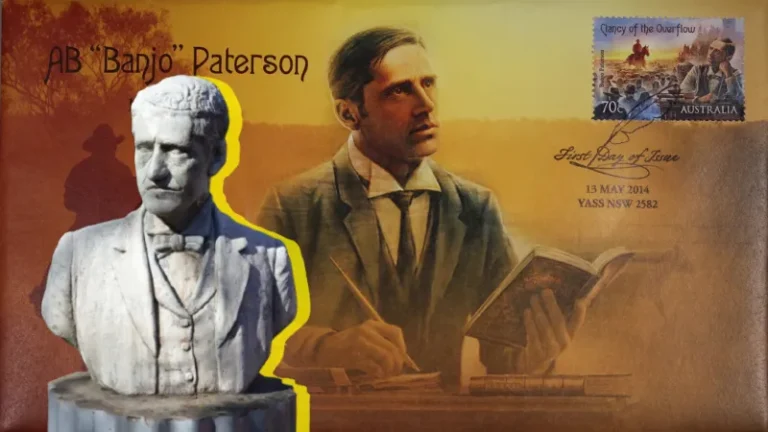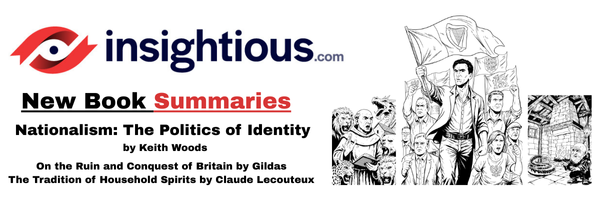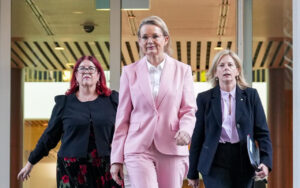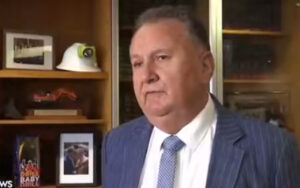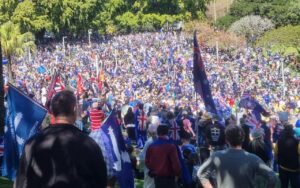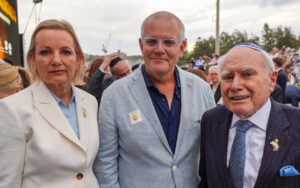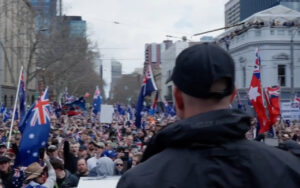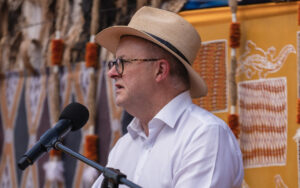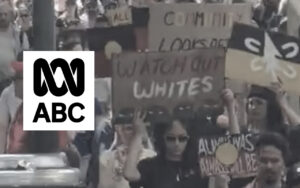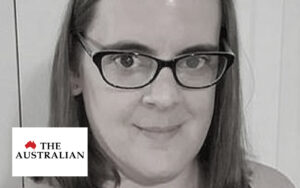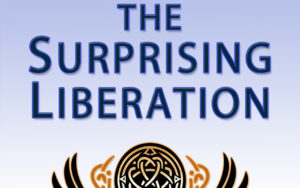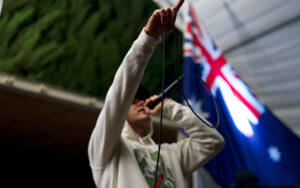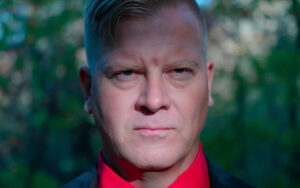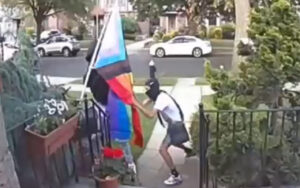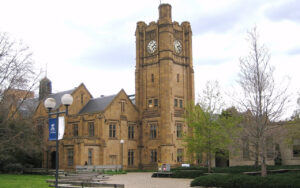January 2025 was an amazing month in Australian nationalism. From climbing mountains to protesting on the street, we have seen various nationalist groups engage in a wide range of activities that have both celebrated and defended the Australian spirit. Key dates of the month such as Federation Day and Australia Day were celebrated, but we also cannot forget that state persecution continued with the activists of the “Australia Day 17” facing ridiculous charges from the police. Yes, we will remember and learn lessons from this month, but it is a broader theme of memory that needs to be discussed, which is the importance of cultural memory.
Cultural memory, in contrast to your own private memories, is the memory that is shared by a group and is reinforced through collective ceremonies and embodiment in memorials such as statues and shrines. Just as an individual, if he loses all his memory, loses much of his identity, a collective nation, if it does not reinforce and defend its cultural memory, loses itself and becomes easy prey for its enemies. When anti-Australian activists topple statues and protest on Australia Day, they are engaged in an all-out war on our national psyche. They seek to erase our memory of who we are.
Given that our enemies are actively fighting on this front, it is vital for nationalists to both defend and take ground in the struggle over our cultural memory. With Australia Day having ended for the year, the nationalist movement should now look forward to the next events on the Australian calendar to guide our thinking, debates, and actions around cultural memory. Of course, we all already understand the importance of ANZAC Day, and like Australia Day it is a key event that the state has yet failed to extirpate, but I believe that it is important that in each month we have at least one day that we can focus on to build our understanding of ourselves.
Last year, the Australian Natives’ Association held its first Banjo Paterson Night on February 17th, the day of the great poet’s birth. The idea behind Banjo Night is that nationalists should consciously seek to strengthen our awareness and appreciation of our national culture and literature by taking time to celebrate the man who is Australia’s best-known poet and, alongside Henry Lawson, a key creator of Australian identity. While we focused narrowly on Paterson’s poetry last year, this year we will cast a wider net and look at Lawson and the Jindyworobak poets for their expression of our unique character and vision of our future.
We will also maintain the focus on Paterson by shining more of a light on a less well-appreciated aspect of his life and poetical aspirations, which is that he sought to be a poet of the British Empire. This is best seen in his work from the time of the Second Boer War when he was a special war correspondent for the Sydney Morning Herald. It was at that time that he first met Rudyard Kipling in person, although Kipling was already something of a model and inspiration for him in his own literary journey. Indeed, the Barrier Miner newspaper of NSW depicted their meeting in the words, “The Australian Kipling has met the other Kipling.” The influence of Kipling is important, as it was partly through his influence on the Banjo’s wartime ballads that we developed the image of the Australian soldier that would become central to the ANZAC legend. That ANZAC legend is now a pillar of our cultural memory. The following stanza from the poem The Reveille is illustrative of this imperial influence:
When we hear our brethren call,
Sound a clear reveille.
Then we answer, one and all,
Answer that the world may see,
Of the English stock are we,
At their side we still will be,
Sound a bold reveille.
This leads into the next key event on the nationalist calendar which is the 10th of March: Commonwealth Day, or, as I still like to think of it, Empire Day. There was a time when Empire Day was the biggest national celebration on the Australian calendar, while Australia Day was a much more minor affair. As we can see from Paterson’s writing, even the strongly Nativist identity of the bush poets was still firmly placed in a context of Empire. I have argued in the past that, although Nativism must come first, it is very important to strengthen the civilisational bloc that is the Anglosphere.
The celebration of Banjo Night in February followed by Empire Day in March sets a pattern that I believe is very important for nationalists to follow. We must first prioritise our uniquely Australian culture and history, which is the core of our identity, but then turn to the broader and internationally shared circle of British Imperial culture which also, undeniably, shapes our national expression. We are not merely British people in Australia, but we should be grateful to that parent nation that we took so much from. This is reason enough to celebrate Empire Day, but it will also provide us with an opportunity to build our international ties with our closest kin in related nationalist movements. I can see a time when this will once again be a proud celebration across the entire Anglosphere.
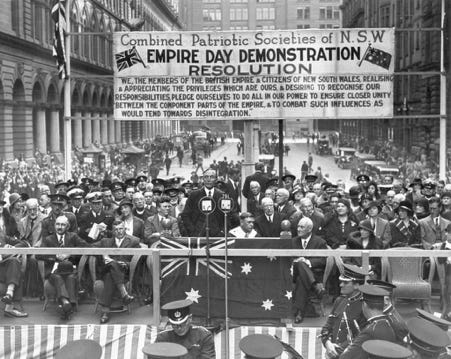
Of course, we should not look past all the mistakes of the British Empire, or even desire to reconstruct it in its inherently multiracial character. After all, it was the British Empire that several times prevented the implementation of immigration restriction policies in this country. Nevertheless, we should look to the “Old Commonwealth” of white British colonies as the image of the core of the Anglosphere. We also shouldn’t neglect Ireland although it has, in many ways and for good reasons, fallen out of the common fold. Many Australian nationalists would do well to spend a little more time studying the history of the British Isles, and especially pivotal events such as the British Civil Wars, and a little less time on the Continent with our German friends.
We have been bequeathed one of the finest political legacies in the world, and with some tweaking the British system of government can be refined into that great unity of organic nationalist feeling with rigorous platonist reason that Hegel proposed as the next stage of the advancement of Western politics. But, to make this a real possibility, we must remember who we are. We must defend the monuments that embody our memory in the spaces of our land. We must strengthen our cultural memory and shape the flow of time in the year after nationalist patterns.
By engaging with key dates on the national calendar, like Australia Day or ANZAC Day, Banjo Night or Empire Day, people tap into and absorb cultural memory. The nationalist movement must act as the cultural vanguard for the Australian populist right, because there is no one else who can do it.
Remember who you are.
Written by Elias Priestly, you can find all his previous articles on the Australian Natives Association website and find more of his content on 𝕏 @Aussie_EliasP.
This article originally appeared on The National Observer and is republished by The Noticer with permission.
